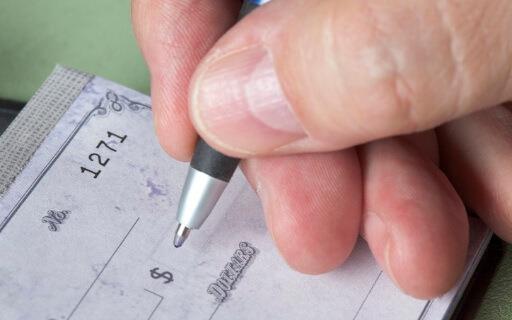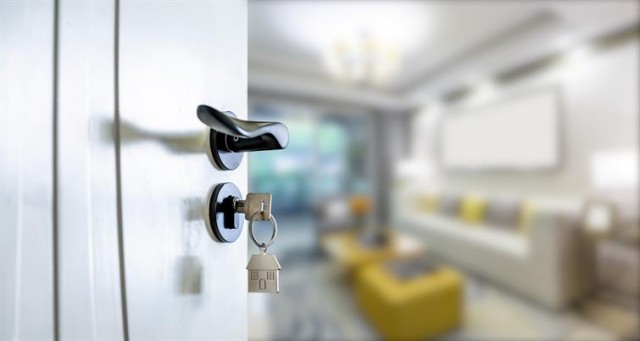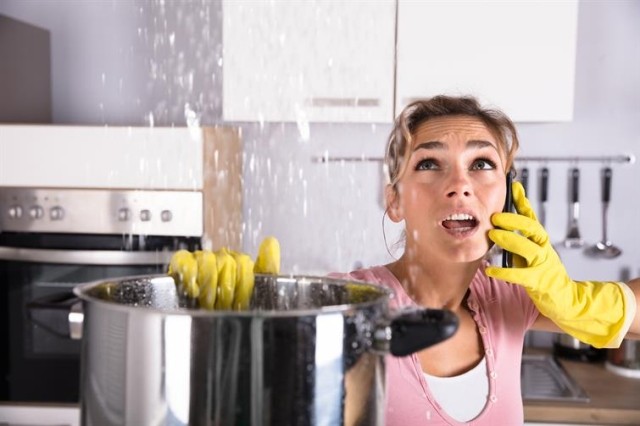It can be challenging trying to find an apartment within your price range. In fact, many renters spend 35 percent or more of their income on rent, according to the US Bureau of Labor Statistics, well above the recommended 30 percent.
Once you find an apartment within your budget, it still might be difficult to keep up with monthly bills along with your rent. For those who qualify, rental assistance programs can help.
In this article:
- What are rental assistance programs?
- How do I apply for rental assistance?
- What does rental assistance cover?
- How do I know if I qualify for rental assistance?
- How can I show that I'm eligible for rental assistance?
- What can I show to prove housing instability?
- How can I show where I live and how much rent I agreed to pay?
- Will my program send the rental assistance to my landlord, utility provider, or me?
- How much financial help can I receive through a rental assistance program?
- If I don't need help with rent, can I still receive assistance with utilities?
- How can I show that I owe money to my utility providers?
- Do I have to be behind on rent to receive rental assistance?

What Are Rental Assistance Programs?
Rental Assistance Programs are programs provided by state and local organizations that distribute money to help landlords and renters struggling to keep up with rent and other bills. To receive money from a rental assistance program, you first must apply. Once you are accepted into a rental assistance program, you can receive money to help you with rent and any other monthly bills. To find a rental assistance program near you, go to the Consumer Financial Protection Bureau and use their rental assistance program finder.
How Do I Apply for Rental Assistance?
First, visit the US Department of Housing and Urban Development to find out what resources are available to you. Then you can apply through your local rental assistance program. Each local program is different and has some flexibility in how it sets its rules and policies. In some areas, you can apply for rental assistance yourself but in other areas, a landlord may need to apply first, and then you can submit an application for rental assistance.
What Does Rental Assistance Cover?
The federal emergency rental assistance program helps state and local programs assist qualifying renters in covering the cost of rent, utilities, and home energy. These programs can also help you cover late fees, utilities, and any moving expenses such as security deposits, application fees, etc.

How do I know if I qualify for rental assistance?
To be eligible for rental assistance, the following three statements have to be true:
1. At least one member of your household has
- qualified for unemployment
- lost income, or
- has had financial hardships
2. Your household income is below a certain amount (this number is based on where you live).
3. At least one member of your household is experiencing housing instability, meaning they could be at risk of becoming homeless or having issues finding a stable place to live.
If after reading this list, you’re still not sure if you qualify for rental assistance, you can try applying to see if you're accepted, or you can reach out to a housing counselor who can answer your questions.
How can I show that I am eligible for rental assistance?
Eligibility is based on each household’s financial situation and housing needs. When you apply for a program, you will be asked to show your income and proof you’re experiencing housing instability. Once you apply, you must sign a written statement that the information in your application is correct and complete and that you will only use the rental assistance for what it’s meant to cover, which is usually limited to rent, utilities, late fees, or moving expenses.

What can I show to prove housing instability?
You may be asked to sign a written statement explaining that you’re experiencing housing instability. But you may also be asked to show any of the following:
- Proof (such as a picture) that you live in an unsafe or unhealthy living condition
- A past due utility or rent bill, or an eviction notice
Remember, each program can make its own rules for determining whether you live in an unsafe or unhealthy home and what kind of proof they accept.
How can I show where I live and how much rent I agreed to pay?
When you apply for rental assistance, you will be asked to show the lease signed by you and your landlord.
If for some reason you do not have a signed lease, local programs may accept proof of your address and a written statement about your rent, such as:
- Proof you paid utilities for your home or apartment (a water bill or electric bill)
- A statement saying you live there from your landlord or property manager
- Bank statements
- Check stubs
Will my program send the rental assistance to my landlord, utility provider, or me?
All programs are different, so it depends on how your local rental assistance program works.
In certain cases, programs may contact your landlord or utility provider and ask them to accept emergency rental assistance to pay off what you owe them. But if your landlord or utility provider does not respond, then the program may give the money to you so you can pay off your outstanding balances.
In other cases, your program might give you the money directly without contacting your landlord or utility provider. Either way, you must pay what you owe using the money you receive from the rental assistance program.

How much financial help can I receive through a rental assistance program?
The federal emergency rental assistance program allows local programs to receive up to 18 months of help with rent, which includes overdue rent. If you have overdue rent, the money must go toward what you owe your landlord first. Local programs can help with future rent payments, up to three months at a time. But all of this depends on your local program. Each local program differs, so make sure you ask about the total amount of rental assistance that's available.
If I don't need help with rent, can I still receive assistance with utilities?
Yes. Your local program may help you pay for your utility or energy costs. This includes paying for future utility or energy bills and even overdue bills you owe your utility or energy provider. Local programs can also help you cover moving expenses, security deposits, rental application fees, and motel or hotel bills for families who have been displaced.
How can I show that I owe money to my utility provider and home energy provider?
If you apply to receive rental assistance for your utilities, be prepared to show a bill, invoice, or proof of payment to the utility company or home energy provider. That way your local program can see that you owe money to your utility and/or your home energy provider.
Do I have to be behind on rent to receive rental assistance?
Depending on the local program, you don’t have to be behind on rent to receive assistance. Some local programs offer help with future rent. But if you have overdue rent, that must be paid first before you can use the money for future rent.
This article is for informational purposes only. If you have questions about rental assistance in your area, please contact your local housing authority.






